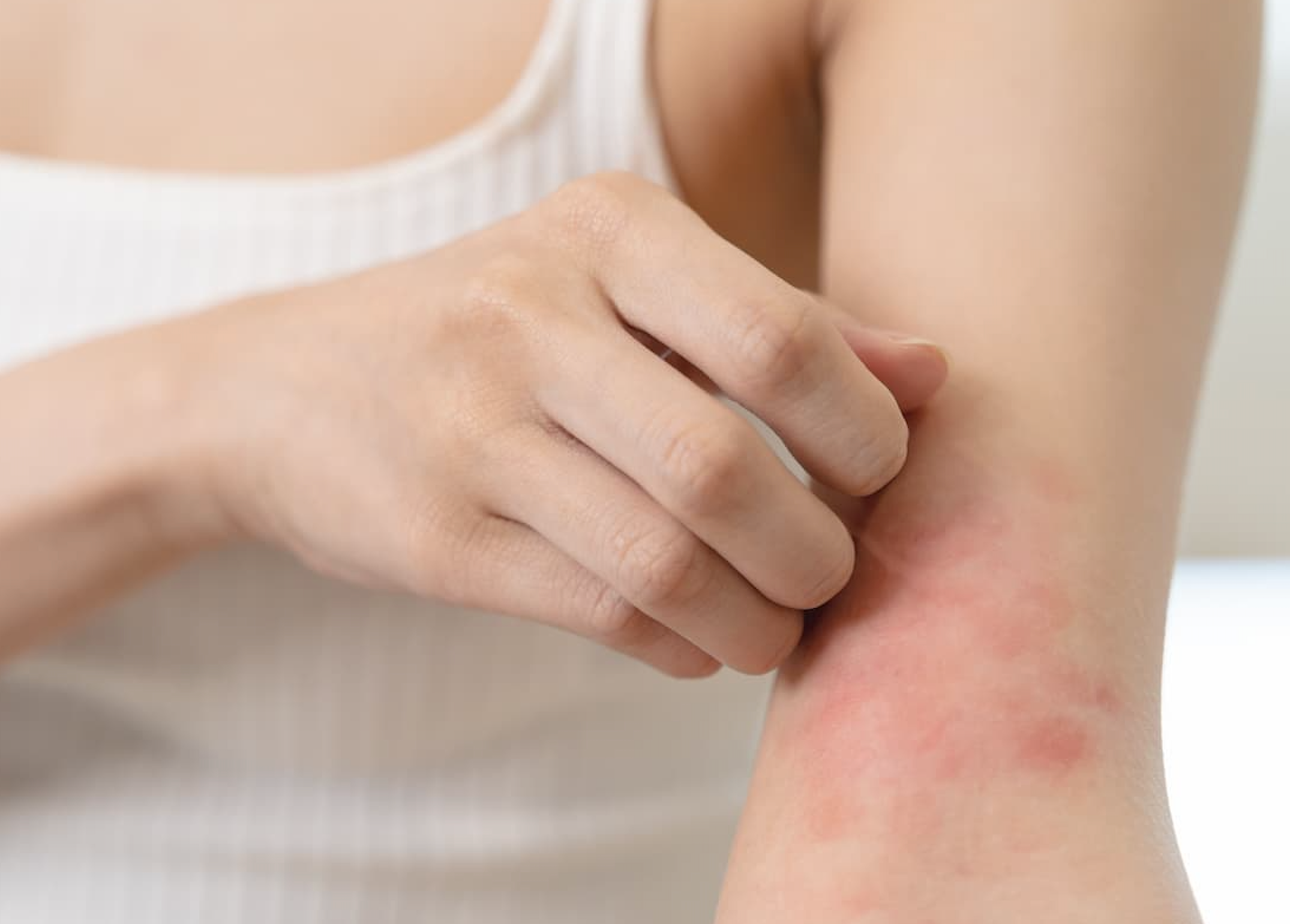
How Sarah Harris Found Power in Her Eczema Story
Journalist and eczema advocate Sarah Harris shares her lived experience navigating life with a visible skin condition and how she found power in storytelling.
By
Lana Pine| Published on July 15, 2025
5 min read
Sarah Harris has lived with eczema since early childhood, navigating the challenges of a visible, chronic skin condition through every stage of life. From a severe flare that landed her in the hospital at age 8 to a transformative experience at Camp Discovery, Sarah has turned her lived experience into advocacy. As a journalist and storyteller, she now uses her platform to elevate the voices of patients with eczema and help bridge the gap between those living with the disease and the systems that treat it.
When were you first diagnosed with eczema, and what was it like growing up with the condition?
Sarah Harris: I was diagnosed when I was around 3 years old. It started after I had a scary asthma attack, and shortly afterward, eczema emerged — part of what we call the atopic triad. I grew up in Dallas, Texas, which is notorious for allergies, and over time my eczema progressed from a fairly mild childhood case to something more severe. I had itchy, inflamed skin that impacted every part of my daily life. In third grade, it got so bad that I developed erythroderma, where your skin becomes so inflamed you lose body heat through it. That landed me in the hospital.
My parents took me to see Jon Hanifin, M.D., at OHSU in Portland, a dermatologist who helped define the diagnostic criteria for eczema. I was hospitalized for several days and went through intense treatment: wet wraps, steroids, antibiotics. There weren’t a lot of options back then. Managing eczema felt like trial and error, and it often took a mental toll. As a kid, all I wanted was to fit in, to play outside without people staring or asking questions about my skin.
Was there a moment that really changed how you saw your eczema?
SH: Absolutely. When I was around 10, I went to Camp Discovery, a summer camp run by the American Academy of Dermatology for kids with chronic skin conditions. It was a turning point. For the first time, I was surrounded by people who looked like me — not just kids with eczema, but others with vitiligo, psoriasis and rare genetic skin diseases. It normalized my experience and gave me a huge confidence boost.
I stayed in touch with my camp friends through letters and instant messaging. I even returned as a volunteer years later. That camp was transformative. It made me realize that while eczema is tough, I’m not alone. It also sparked an amateur interest in dermatology that I still carry with me today.
What are some of the unique challenges of having a visible condition like eczema?
SH: Skin is a very social organ. People make a lot of assumptions about you based on what your skin looks like — whether you’re healthy, clean, desirable or even trustworthy. That’s a lot of pressure when you’re living with a chronic condition. With eczema, there’s also the itch factor. There’s a stigma to scratching. People see it as a lack of self-control or assume it’s contagious. And yet, culturally, eczema is often minimized as just “dry skin.”
But for many of us, it’s so much more than that. It’s a condition that can impact every aspect of life — your sleep, your job, your relationships, your confidence. And that impact shifts depending on where you are in life.
How has your lived experience shaped your work as a writer and journalist?
SH: We like tidy illness narratives: “I got sick, I did something, and then I got better.” But chronic conditions don’t work that way. Eczema flares and fades. It doesn’t have a clean ending. As a storyteller, I try to resist that narrative pressure. Instead, I focus on how people live with their conditions — what makes life joyful or bearable, how they adapt and what kind of care they receive.
When I tell eczema stories, I want people to see the complexity: how the disease changes with time, how it touches everything, and how patients deserve more than to just “get by.“
What led you to get involved with the National Eczema Association (NEA)?
SH: In my 20s, I had a terrible flare — possibly topical steroid withdrawal — and I could barely get out of bed. It was a huge wake-up call. I started seeking out others who were going through similar things and found a growing online eczema community. That led me to NEA.
I went to Eczema Expo in 2019, and it was life-changing. Meeting people face to face, hearing their stories — I realized I had a community. Since then, I’ve written articles and helped lead workshops.
What’s one piece of advice you would give to someone newly diagnosed with eczema?
SH: Eczema is part of who you are, but it’s not all of who you are. It’s easy to fall into the trap of obsessively trying to “fix“ your skin — cutting out foods, eliminating products, giving up joy. But you deserve a full life. Focus on how you can live well in your skin today.
This transcript was edited for clarity.

